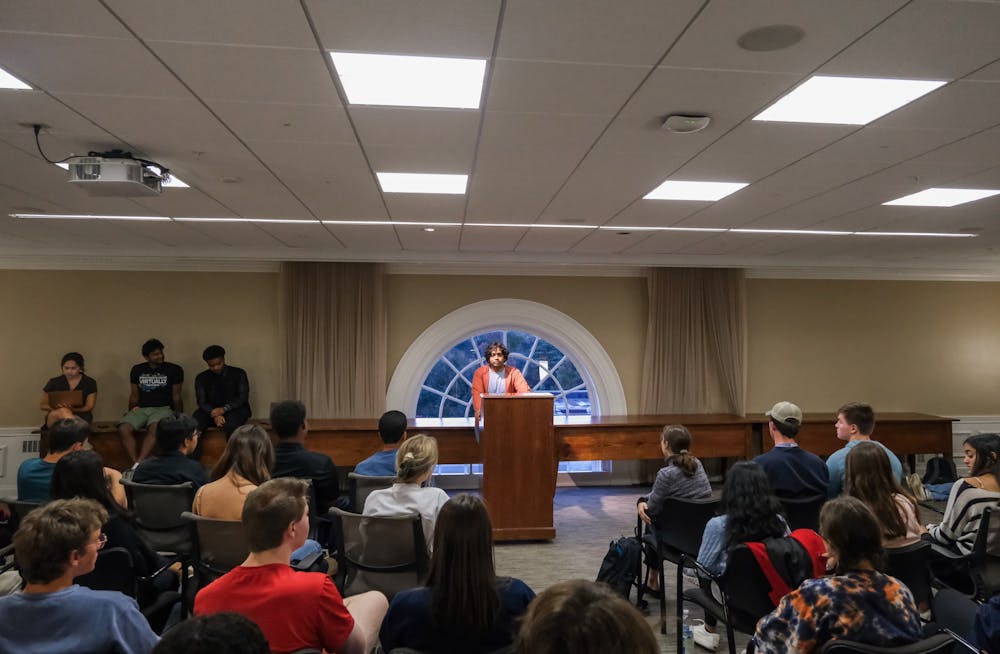New representatives of the University Judiciary Committee joined its general body meeting for the first time Sunday for a refresher on processes involving secondary ruling bodies, such as Contributory Health Impairments and appeals. The group also completed its annual internal demographics survey.
Nabeel Raza, chair of UJC and fourth-year College student, began the meeting by welcoming new support officers.
In order to both bring new members of UJC up to speed and refresh more experienced members, Raza summarized the Contributory Health Impairment and appeal processes.
“These both act as important checks and limitations on our power, as the UJC is the major disciplinary process at the University,” Raza said. “We see a wide range of cases with a wide range of content, so these processes make sure that we’re doing our jobs right.”
An accused student can file a Contributory Health Impairment within 14 days of notification of their case to allege that their offense was caused by a mental or physical condition. In this case, UJC will pause its trial process in order for a board of health professionals to discuss whether the CHI qualifies.
“We don’t want to punish someone for a health condition, and we want to account for context, but we’re not trained to diagnose or treat conditions, so we need expert advice,” Raza said.
If approved, the UJC no longer holds jurisdiction over that student’s case, and an Evaluation Hearing Panel will determine the outcome.
The appeal process allows students to advocate for themselves by attempting to overturn or adjust a ruling. Students found guilty can appeal based upon new evidence or procedural errors, while students punished with sanctions may do the same or argue that the sanctions are unduly harsh for their offense.
Appeals are heard by the University Judicial Review Board, which is composed of a chair and 14 other faculty, staff and student members.
Raza said that, although students have the right to appeal, they should be aware that sanctions can also be added, so the process typically proves unfruitful for students looking to make minor changes.
“We have a pretty excellent record on appeals — the vast majority of them are overruled,” Raza said.
Following introductions, Melinda Wong, senior data manager and second-year College student, emailed out a demographics survey to the group. UJC completes a similar survey each semester in order to understand the organization’s composition.
“It’s really important to get data that’s representative of who we are,” Wong said.
Last year’s survey showed that 59 percent of UJC members identify as female, compared to 56 percent of the University student population. Internal racial demographics have remained fairly stagnant in recent years, with the proportion of white students at 64 percent since 2017, the proportion of Asian students falling between 12 and 16 percent and Black students between 6 and 13 percent.
Ineke La Fleur, senior investigator and third-year College student, announced two new policy changes for the semester. In contrast to prior years, both an investigator and counselors are required to attend interviews in order to better support students. In prior years, only investigators would interview accused parties.
Additionally, for non-material witnesses — those who were not eyewitnesses and cannot add new or substantial information — the formerly-required in-person interview can be surpassed through written consent to write a statement instead, in order to expedite the process.
“There’s a high case load this semester, which is very exciting to have, but also means we need to get things moving,” La Fleur said.





